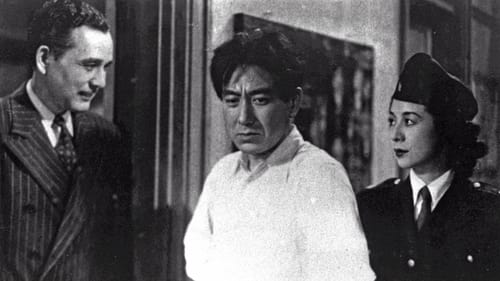
The investigative unit of the Metropolitan Police Department organized a special investigative team to uncover a series of frequent gang robberies and car gangs...
This is the first film in the Nippon G-Men series, of which four more films were later released.

The Opium War is a 1943 black-and-white Japanese film directed by Masahiro Makino. "Ahen senso" in Japan refers to the First Opium War. The story of the film concerns this war.

The three-hour Ai yo jinrui to tomo ni are / Love, Be with Humanity (1931) starts as a satire of alienation in the world of money, develops into a lumberland epic with a forest fire on Sakhalin Island, turns into a tragedy of King Lear dimensions, and manages to amaze the blasé audience with a happy end in the Wild West.

A modern girl suddenly intrudes into a widower's family home.

A farmer’s boy, obsessed with his balsa-and-paper flying models and with dreams of real aircraft, develops a friendship with the daughter of the local squire, who introduces the lad to her pilot brother and his flying officer friends; through hard work, and despite the handicap of a lowly class status, he eventually succeeds in qualifying as a pilot and joining the air force.

A young man torn between love and friendship.

Toshio Ishikawa
Comedy by Kiyohiko Ushihara. Once a full-length feature film, now only 14 minutes remain.

Koichiro
Película dividida en historias diferentes que caminan en paralelo. Por un lado, un joven deja su casa de Tokyo y tras tener un hijo decide casarse con la madre y regresar a su hogar. La segunda historia concierne a un par de delincuentes que buscan trabajo en la ciudad. Film mudo, uno de los pioneros en Japón. Se considera el primer montaje en paralelo del cine asiático, siendo, a su vez, el primer clásico del cine japonés.





